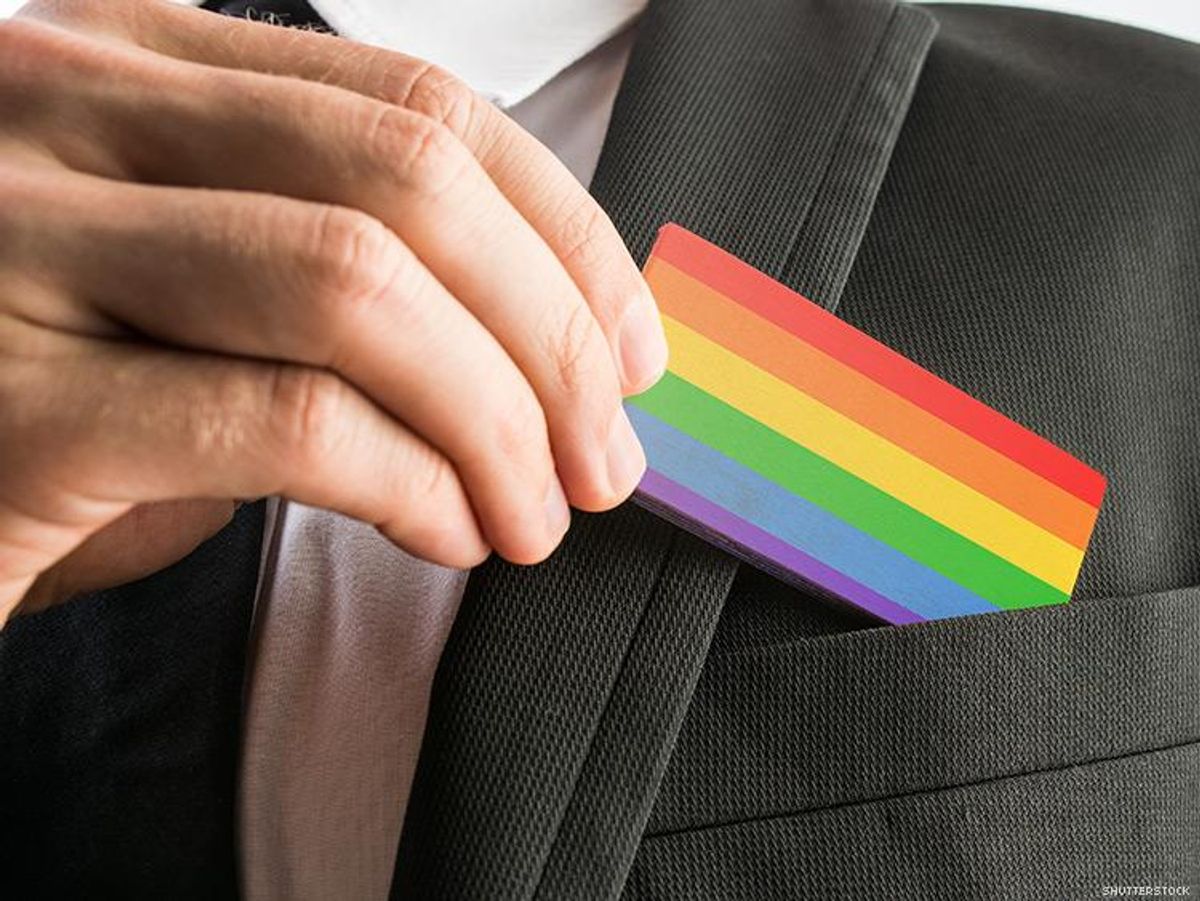Voices
Some Straight Journalists Need a Reminder on the Reality of LGBT Life

Turning our lives into potentially dangerous clickbait stories is unacceptable.
Ken Miguel
August 18 2016 5:24 AM EST
May 26 2023 2:12 PM EST
By continuing to use our site, you agree to our Private Policy and Terms of Use.

Turning our lives into potentially dangerous clickbait stories is unacceptable.
A fellow reporter and friend of mine tore into my cubicle the other day to express his outrage over an article that appeared in The Daily Beast. He's gay, and like many gay journalists, he questioned the ethics of Daily Beast reporter Nico Hines. My colleague was so disturbed that he told me for that for the first time in his career, he emailed another journalist to express his concern about their work. He was not alone.
"I Got Three Grindr Dates in an Hour in the Olympic Village" was a detailed account of how Hines went on dating apps to find out if Olympic athletes were hooking up. What it ended up being was a lesson in journalism ethics. Hines, who is straight and married with a child, says he told people he was a journalist. But he doesn't say if he told the people he was interviewing that he was writing an article about them. As journalists, our code of ethics begins with an unwritten pledge to do no harm, to be fair, and to be accurate. Hines missed the boat on the first two. The reporting was unethical, extremely careless about individual privacy, and potentially dangerous to the athletes.
The only thing he was accurate about was that athletes who may be LGBTQ are a part of the Olympic community. Instead of telling the stories about their national pride or the struggles they have overcome to get this far, The Daily Beast published a story amounting to clickbait. In his article, Hines goes on to all but name the athletes he talked to, in some cases, naming their countries and sports they participate in, their heights, and even their standings. In some cases he identified a player as being from "a notoriously homophobic country."
What is most worrisome about this article is that it made it through the editorial process. That's right, other people (in theory) read this post before it went online and no one thought there might be a problem, until it was too late. Hines and The Daily Beast outed athletes, threatening their professional careers and their lives. We know what happens to many LGBTQ people around the globe when they are outed. They are harassed, imprisoned, and in some cases killed when their sexual orientation, gender identity, or gender expression is revealed.
In the United States, many people feel the tides have changed on LGBTQ equality thanks to marriage for same-sex couples becoming a reality. In many places lives can still be ruined just for being gay. In 32 states, you can get married on Sunday and fired Monday without cause.
In the United States, research has shown that LGBTQ teens and young adults have one of the highest rates of suicide attempts. Lesbians and gays outnumber trans people six to one, yet transgender people are 50 percent more likely to be murdered. A Centers for Disease Control and Prevention study found 61 percent of bisexual women and 37 percent of bisexual men report rape, physical violence, and/or stalking.
Across the country, The Daily Beast article spread swiftly and so did the outrage. Many of the people who expressed concern were my fellow journalists. As a member of NLGJA: The Association of LGBTQ journalists, I have watched for years as publications big and small, online and offline, have made "mistakes" in covering our community. NLGJA is not an advocacy group but a group of working journalists dedicated to ensuring fair and accurate coverage of the LGBTQ community.
This time it wasn't just LGBTQ media that had to call out the absurdity of this article; many mainstream publications and news outlets quickly jumped in to call out the questionable ethics of this article. It is not often that a publication will pull an article because people don't like it. But I do believe that this pressure from other journalists played a significant role in The Daily Beast publishing a toned-down version of the article that later appeared and ultimately deciding to remove it altogether. Removing it may take the sting out of the article. Some will say The Daily Beast bowed to pressure. But taking it down was the right choice, because the article should have never been published. But this is the internet, and it will live in perpetuity somewhere, like a scar from a deep wound; it will be talked about for years and hopefully come up as a lesson and reminder that journalistic responsibility, personal rights, and common decency shouldn't be thrown aside by an urge to get more clicks.
